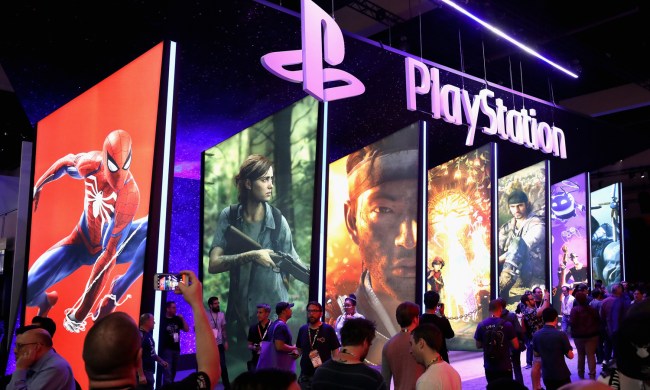PlatinumGames President Atsushi Inaba turned heads in a recent interview when he indicated that the beloved Japanese developer would move away from the kind of single-player games it is known for. While PlatinumGames made a name for itself with linear, single-player action titles like Bayonetta and Nier: Automata, Inaba believes the company should make more titles that players can enjoy for long periods of time.
"When it comes to future game production, we want to focus on creating games that are different from the past," he told Famitsu (VGC translated the comments). "I would like to focus on creating games that can be enjoyed and loved for a longer period of time ... Considering the changes in the market over the next five years or so, I think it is absolutely necessary for us to do this."
Some fans fear this means PlatinumGames is about to embrace the live service segment of the video game market. This is worrying to some as Babylon's Fall, the first game of this kind for PlatinumGames, is shaping up to be a disappointing endeavor. Meanwhile, the single-player Bayonetta 3 looks like the kind of fast fun fans come to expect from the studio.
PlatinumGames isn't the only studio chasing the live service dream. Sony is doubling down even more. After acquiring Destiny developer Bungie, Sony Chief Financial Officetr Hiroki Totoki revealed that PlayStation Studios plans to release 10 live service games by March 2026.
Games like this are controversial because they're monetized, and they vary vary in quality. You either end up a great success like Final Fantasy XIV or become an expensive failure like Anthem and Marvel's Avengers. So why are so many companies still pivoting to this model after high-profile disasters and disdain from hardcore gamers?
It pays to win
The answer is more straightforward than one might think. In reality, it comes down to what makes money. Yes, single-player games can still be successful and perform well for companies, but data from analysts highlights how much the DLC, microtransactions, and subscription elements of live service games make. Mat Piscatella, NPD Group executive director and video game industry adviser, explained this on Twitter, noting that 60% of non-mobile game content spending comes from DLC, microtransactions, and subscriptions.
https://twitter.com/MatPiscatella/status/1490711392449486851
It's not surprising that PlatinumGames executives see that the studio is leaving money on the table by not developing games that engage players like that. Bayonetta 3 could sell millions of copies when it launches later this year, but live service games could sell the same amount and then continue to make money years after launch.
Multiple analysts have recognized this trend too. Niko Partners senior analyst Daniel Ahmad tweeted a chart revealing that Sony made more from add-ons, microtransaction, and DLC content than digital and physical game sales combined.
https://twitter.com/ZhugeEX/status/1490714400000512005
To stay appealing to investors and keep the business afloat, companies will go where the money is. This approach, unfortunately, can have some harmful side effects. We've seen it happen more recently with NFTs, but there's a history of live service games gone wrong as well. High-profile live service games like Anthem and Marvel's Avengers have failed because they got bogged down in nickel-and-diming players or did not ensure the quality of gameplay increased with the length. If your game isn't fun, no one's going to want to spend hundreds of hours in it just because they can eventually unlock some cool-looking things.
Babylon's Fall currently seems like it may not do well, so PlatinumGames needs to focus on quality if it continues to go down this path.
Quality over quantity
DLC and microtransactions do have a bad rap around the video game industry for a good reason. When companies merely focus on player engagement and sales data, they often forget to make games that players will enjoy. The best approach for Sony and PlatinumGames is to make sure the gameplay, story, and worlds are a lot of fun before they stretch the experience to last a long time. It also seems likely that neither PlatinumGames nor Sony should completely abandon the types of games they are known for.
In the same interview with Famitsu, Inaba states that PlatinumGames "would like to cherish and create small but brilliantly conceived games such as Sol Cresta, and games in which you can enjoy the process of clearing the game by going through one-off, well-designed stages, such as Bayonetta." Inaba also wants the games to feel like what the studio is known for, saying, "I want to lead PlatinumGames in a direction that is pure and unadulterated."
While Babylon's Fall makes this trend look worrying, we don't know if that's the only way PlatinumGames plans to create games that players engage with for a long time. PlatinumGames must learn from the shortcomings of Babylon's Fall and improve if it doesn't want to release a string of live service flops.
Meanwhile, live service will be just one part of Sony's first-party game strategy in the future. While the Bungie acquisition may allow the company to make more live service games, plenty of single-player PS5 exclusives like Horizon Forbidden West, God of War: Ragnarok, and Marvel's Spider-Man 2 are still on the way. Sony also intentionally acquired Bungie because of its live service experience with games like Destiny 2, so it wants to approach that kind of game correctly.
We've seen plenty of companies get the live service model wrong as it's a high-risk, high-reward market. To stay relevant, PlatinumGames and Sony might have to embrace forever games more than their fans may prefer. Still, if making great, fun games remains a priority, these companies shouldn't go off the rails anytime soon. They'll just make more money while doing it.



